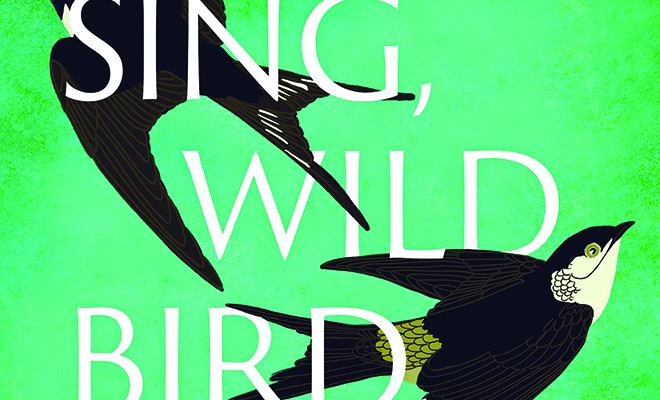
Sing, Wild Bird, Sing: A Novel by Jacqueline O’Mahony
Sing, Wild Bird, Sing: A Novel by Jacqueline O’Mahony is the epic story of a young girl born under a piseog, a curse, during the Irish Famine. There was nothing Honora could do. The curse was declared because a robin flew into the house during Honora’s birth and her mother died. The tragedy isolates Honora from her father, who, at best, is indifferent to raising her.
The superstitions of the village people further isolate Honora. She grew up living in the woods around the house and was generally left alone. She survived by closely observing nature and, because of her freedom to roam the fields and woods, never learned the womanly skills of homemaking, yet William O’Donoghue courts and marries her.
Then, the Great Famine strikes Ireland. With other members of her village, Honora walks across the snow-covered mountains to the landlord’s estate. He has promised help, but the villagers arrive too late, and he refuses to receive them. They are forced to return to their village. On the way home, Honora begins labor. She had no idea she was pregnant. So many women had stopped their menses because of lack of food and that’s what Honora believed she was suffering. Her baby dies and Honora feels an unspeakable tragedy has occurred. She is the only member of her village to survive.
Penniless and homeless, she decides to go to America to find a better life. She walks to the docks and slips aboard as a stowaway while the deckhands are distracted. On the long voyage, she is befriended by other girls who have letters of recommendation for jobs as housemaids in New York City. They decide to help Honora and take her with them to get a job. Having no refinement or household skills, Honora is the lowest of the low in the hierarchy of domestic servitude—a scrub maid.
When her friend Mary falls ill, Honora does both her job and Mary’s. The housekeeper refuses to pay the agreed-upon wages; Honora plots her escape and urges Mary to come with her.
While she’s not naïve, Honora’s trusting nature is taken advantage of by many, including Mary. The young women flee westward, where Mary’s friend Ignatius has promised them work and lodging. It turns out to be in a whorehouse.
Forced to work as prostitutes, Honora and Mary remain close until a pregnant Mary rats her out to Ignatius when Honora tries to escape with her soon-to-be husband, Prosper. Honora and Prosper manage to escape after killing (or so they thought) Ignatius. A truly evil man, Ignatius survives and pursues them across the country as they try to escape.
Throughout the story, Honora struggles stoically and suffers indignities wordlessly. Nevertheless, she manages to use her cleverness to overcome all obstacles. After fleeing Ignatius, Honora finally achieves her goal of freedom in a totally unexpected way when she sees the pinto pony and, later, Joseph.
Irish author Jacqueline O’Mahony has written a fascinating tale of survival and freedom set against the background of the Irish Famine. She says, “Irish people are fascinated by the Famine; it’s a blood memory for us.” She also felt the story told itself. She wrote her fiction only to find out later that the same events had actually occurred. She believed that the story was waiting to be told.
The first part of the story focuses on the tragedy of Doolough and the Famine Walk, where, in March 1849, the villagers were forced to walk across mountains in snow for help that never came. Few survived. The second half of the story is set against the background of the New World and the indigenous people of the American northwest. Honora and Mary live in the raucous mining town of Bolt, Colorado, before Honora escapes with her cowboy and eventually meets Joseph Blue Horse of the Cayuse people. The relationship between the Irish and the indigenous people of the American west is little known to most Americans, but in this part of the novel, O’Mahony shows parallels between the displaced peoples of both nations demonstrating their affinity for each other. Her research led her to numerous instances of interaction between the two peoples. “We are kindred spirits with the Irish,” said the chief of the Choctaw nation, in 2020.
The novel is poignant; it makes one ask, “How much misery can one human tolerate?” Honora survives by simply going about her life from day to day, event to event, at least on the surface. However, she is always thinking of how she can escape her current circumstance and achieve her goal of freedom. She will resonate with other women who are survivors and have led similar lives. Honora is an unlikely heroine, but one that will be hard to forget.







